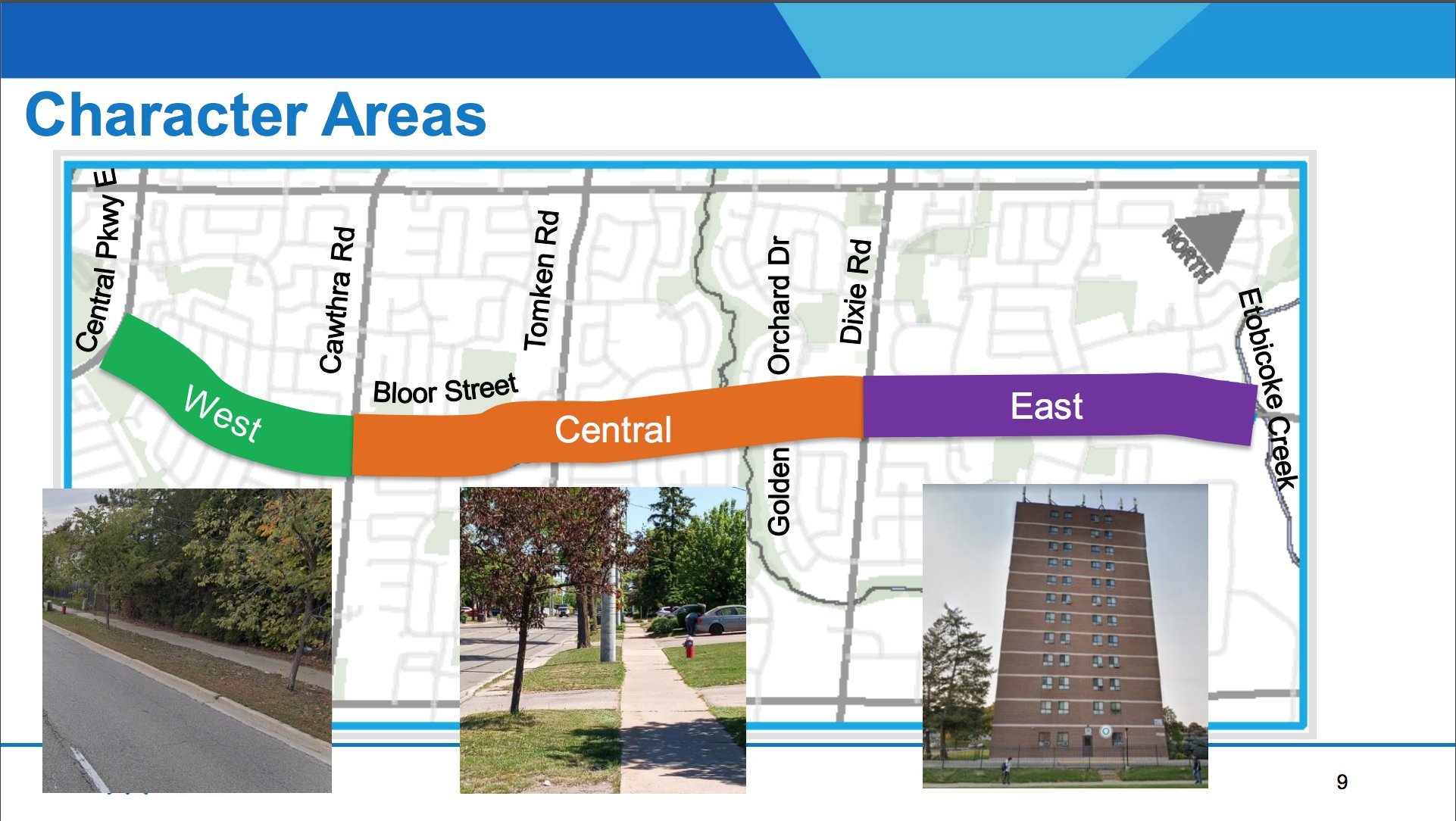'It's frustrating': Mississauga residents group says bike lane project violates their Charter rights
Claim that biking infrastructure creates risk of injuries, death is contested by advocates
For a Mississauga residents group, a bike lane that could run in front of residential homes on Bloor Street represents a violation of the most fundamental rights in the land, while others believe the proposed cycling infrastructure means a safer road in a city far behind the curb on supporting active transportation.
Such are the stakes as the city is set to host a third, previously unplanned, community meeting on March 9 for the Bloor Street integrated project, a proposal recommending adding 4.6 kilometres of bike lanes on Bloor from Etobicoke Creek, across the Applewood Hills and Heights neighbourhoods before ending at Central Parkway East.
The third meeting was called after a January city council session where the Applewood Hills and Heights Residents’ Association’s Athina Tagidou argued the Bloor bike lanes would violate Section 7 of the Charter of Rights and Freedoms, which pertains to the right to life, liberty and security of the person.
Tagidou told council she believed the proposed cycling infrastructure in the residential stretch between Cawthra and Dixie would increase risks of injuries and death as “homeowners and businesses on a daily basis struggle to negotiate the bicycle lanes.”
"The city, by constructing bicycle lanes on Bloor Street between Cawthra and Dixie, would strip us of the freedom to make fundamental personal choices of our individual dignity to live without fear and the individual independence to choose how we live our lives in our homes as well as out on Bloor Street," she said at the January meeting.
In an interview after the meeting, Tagidou said residents are concerned about losing trees and boulevard parking and that a petition with over 130 signatures sent to the city opposing the bike lanes represented the will of the area.
“I think they have to listen to the people,” Tagidou said. “And the key stakeholders who are the people in this particular case (are those) live directly on Bloor Street.”
The recommended plan for Bloor Street would be to add cycle tracks, which are slightly elevated bike lanes that are separated from the road, while narrowing the four existing road lanes.
Studies have found that narrower lanes mean lower speeds and less aggressive driving while wider roadways have 33 per cent higher vehicle impact speeds and crash rates.
Mississauga cycling advocate Rahul Mehta said the Bloor bike lane would provide active transport connections for an under serviced area in the city and described the Applewood petition as “misinformed.”
He said he sees a pattern where small groups of residents wield disproportionate power over important city infrastructure decisions.
“For residents and just the neighbours bordering a particular bike lane to claim that they have some sort of ownership over a piece of transportation infrastructure that benefits the city, it's frustrating,” he said.
Kris Hammel of Mississauga’s cycling advisory committee said vehicular traffic on Bloor Street moves too fast for inexperienced cyclists to feel safe, pushing some to ride on the sidewalk.
“And if you provided more safe infrastructure, you'd see an uptick in people trying to use the area,” he said.
The resident group pushback comes as the city has struggled to build planned bike lane infrastructure, including 17.9 kilometres of bike lanes promised by the end of 2020 as part of COVID-19 recovery plans.
By December 2020, the city had installed 3.5 kilometres of the planned COVID-19 lanes, and a city staff update from January said another 1.5 kilometres has been built of the planned 17.9 kilometres over 2021.
With that track record, Mehta is concerned that the Bloor bike lanes won't be built, he said, because council is less worried about alienating cyclists than resident groups.
“There isn't a large organized group of people cycling in the city,” he said. “There are no nonprofit organizations, there are no advocacy groups that are formalized, and (council) will still get their votes if they don't build this, at least for now.”
The Bloor project runs across Mississauga Wards 3 and 4.
Ward 3 Councillor, and chair of the city’s cycling committee, Chris Fonseca did not make herself available for an interview, but wrote in an email that the third community meeting for the Bloor Street project was “an important next step for a fulsome review.”
She did not say explicitly whether she supported bike lanes on Bloor Street.
Ward 4 Councillor John Kovac said he is supportive of the bike lanes in his ward and that adding a third community meeting was a way to hopefully bring more residents on board.
“They felt like it was a bit rushed,” Kovac said. “So I thought it wouldn't hurt if we can lengthen a little bit more of the process, even if that means that it's going to delay the commencement of the construction.”




Comments
Post a Comment